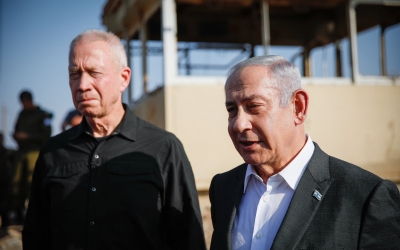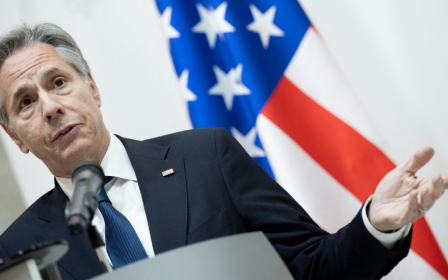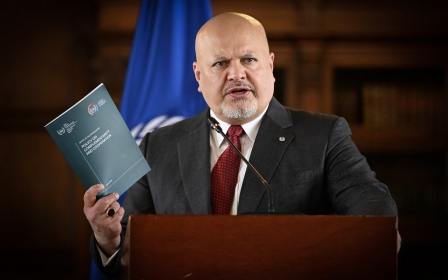Explainer: US lawmakers threaten ICC with 'The Hague Invasion Act' - but what is it?
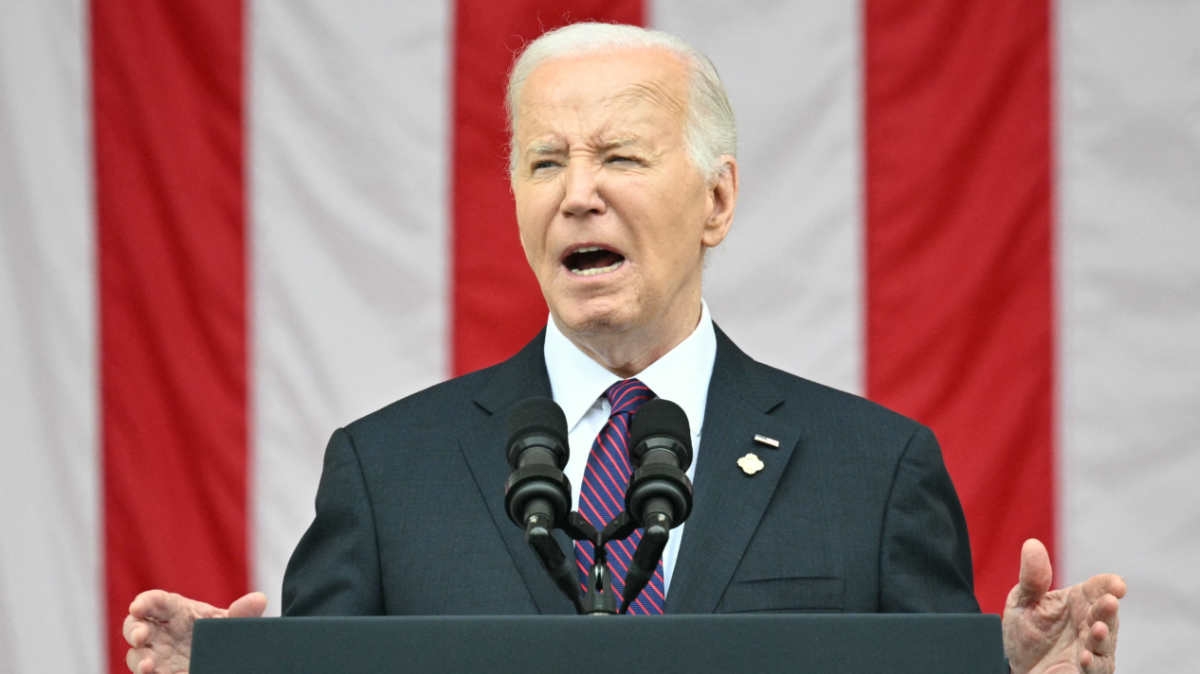
The Biden administration has reacted with fury after the chief prosecutor of the International Criminal Court (ICC) announced he was seeking arrest warrants for senior Israeli officials and Hamas leaders.
US President Joe Biden criticised the move, saying that putting the two on an equal footing was "outrageous".
Meanwhile, his top diplomat, US Secretary of State Anthony Blinken, suggested the administration was willing to work with Congress to sanction members of the ICC and come up with a response to the World Court.
Some defenders of Israel have gone further, warning the ICC against pursuing warrants for Israeli Prime Minister Benjamin Netanyahu and Defence Minister Yoav Gallant, citing a two-decades-old law that gives the US president power to directly challenge the court.
“If you issue a warrant for the arrest of the Israeli leadership, we will interpret this not only as a threat to Israel’s sovereignty but to the sovereignty of the United States. Our country demonstrated in the American Service-Members' Protection Act the lengths to which we will go to protect that sovereignty,” 12 US senators wrote in a letter to ICC chief prosecutor Karim Khan.
New MEE newsletter: Jerusalem Dispatch
Sign up to get the latest insights and analysis on Israel-Palestine, alongside Turkey Unpacked and other MEE newsletters
The American Service-Members' Protection Act (Aspa), informally called The Hague Invasion Act, was included in the now little-remembered Supplemental Congressional Appropriations Act, signed into law in 2002 by US President George Bush, in response to the 11 September attacks.
Notably, then-Senator Biden joined a bipartisan group of lawmakers who voted in favour of the law.
What is the Hague Invasion Act?
The act takes its name from Section 2008, which authorises the US president to use “all means necessary and appropriate” to free members of the US military and “covered allied persons”.
The law states that the term "'covered allied persons' means military personnel, elected or appointed officials, and other persons employed by or working on behalf of the government of a NATO member country, a major non-NATO ally (including Australia, Egypt, Israel, Japan, Jordan, Argentina, the Republic of Korea, and New Zealand),."
When the law was passed, Human Rights Watch said its language implied that the US president had sweeping powers to fight the court.
“The new law authorizes the use of military force to liberate any American or citizen of a US-allied country being held by the court, which is located in The Hague”.
Has the White House cited the act yet?
No, the Biden administration, has refrained from directly citing the law in its condemnation of the court. “We will always stand with Israel against threats to its security,” Biden said in a White House statement responding to the call for warrants.
Other defenders of Israel, however, have cited the law in their calls for a forceful US response to prosecutor Khan, who they believe is targeting the US’s closest Middle East ally.
“As that term 'The Hague Invasion Act' suggests, no one knows how far the ICC is prepared to go - or how far Americans are prepared to go to defend ourselves,” veteran US diplomat Elliot Abrahams said.
Pro-Israel Republican Congressman Brian Mast was more cryptic.
“America doesn't recognize the International Criminal Court, but the court sure as hell will recognize what happens when you target our allies.”
For critics, the US's ambivalence toward the ICC is a sign of its doublespeak. US Senator Lindsey Graham, who threatened to sanction ICC chief prosecutor Karim Khan and other court officials, was the same lawmaker last year who advocated for the Biden administration to back its case against Russian President Vladimir Putin for war crimes.
The most extreme aspects of the law get the most attention but the act has plenty of other more tangible impacts on US policy and can be traced back to the creation of the ICC.
What is the US relationship with the ICC?
Under US President Bill Clinton, the US was instrumental in drafting the Rome Statute, which created the ICC. But it has refused to join 123 other nations, including the US and Nato allies, in signing the treaty to place itself under the court’s jurisdiction.
Aspa is a legacy of the decades-old tensions between the US and the court and imposes sweeping limits on cooperation between the two.
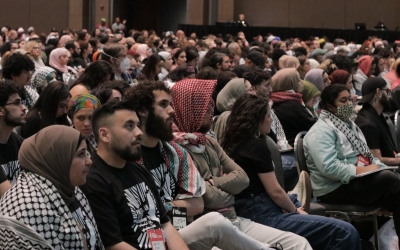
Aspa prevents federal, state and local US governments from working with the ICC. It limits national security and law enforcement information the US can share with the ICC and even signatories to the court which can be used to facilitate its investigations and apprehend suspects.
What impact has the act had so far?
The law restricts US participation in UN peacekeeping missions unless the US obtains immunity from prosecution for its soldiers.
In many respects, the law codified US scepticism of the ICC.
Just months before the act was signed into law, the US vetoed a six-month extension of the UN’s peacekeeping mission in Bosnia because the Security Council refused to grant US troops serving immunity from the court.
The tensions over the renewal of the Bosnia peacekeeping mission, which flared up again in 2009, were just one part of the US's tensions with the court.
The Obama administration in 2015 threatened its $440m aid package to the Palestinian Authority when it joined the Hague. It also rejected its preliminary investigations of the US-led war in Afghanistan.
In 2018, Donald Trump's national security advisor, John Bolton, announced the shutdown of the Palestinian Liberation Organisation's office in the US after it tried to lobby the ICC to investigate Israel.
He warned the US could sanction ICC officials, saying no international court could take the place of what US President Franklin Roosevelt called America's "righteous might".
Middle East Eye delivers independent and unrivalled coverage and analysis of the Middle East, North Africa and beyond. To learn more about republishing this content and the associated fees, please fill out this form. More about MEE can be found here.


